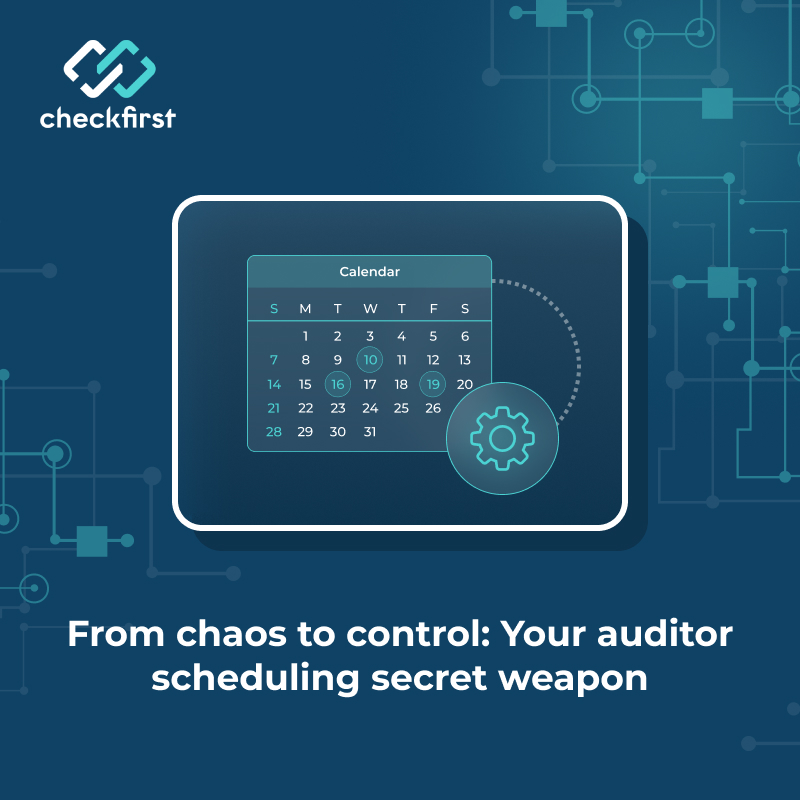



Most scheduling managers believe they need more staff to handle complex audit assignments. They're wrong. The real problem isn't workforce size; it's outdated tools forcing smart people into repetitive tasks.
While you're manually checking qualifications and updating spreadsheets, others might be using an auditor schedule planner to automate these processes completely. The efficiency gap between manual and automated scheduling grows wider every quarter, directly impacting your bottom line and team’s satisfaction.
This blog reveals the true costs of manual scheduling methods, shows what next-gen scheduling tools, like ScheduleAI, actually deliver, and shares real performance data from teams already ahead of the curve.
Key takeaways:
We've all been there, haven't we? When your perfectly made spreadsheet turns into a house out of cards. You change one small thing and suddenly everything falls apart. You switch between calendars, emails, and notes while checking qualifications and travel. Here’s what it costs:
How many hours did you spend last week just rearranging tasks around on your schedule? Calling auditors, checking availability, cross-referencing competencies, updating spreadsheets, and sending emails.
One scheduling manager told us she spent one full week rebuilding a schedule because of a single last-minute change. One week! That's not planning - that's crisis management.
Wrong competency assignments, expired certificates, rotation rule violations - they're quietly accumulating in your spreadsheets. One oversight could mean starting over, explaining to unhappy clients, and watching your reputation take a hit.
Overusing subcontractors because you can't see internal capacity? Sending auditors on unnecessary cross-country trips? Every scheduling mishap hits your bottom line harder than you think.
What's your team's utilization rate right now? How many audits are at risk due to scheduling conflicts? If you can't answer instantly, you're not alone - but you shouldn't have to dig through five different files to find out.
An auditor schedule planner reduces admin, protects compliance, and gives leaders live KPIs.
Related Post: The hidden cost of manual scheduling: A look at time, errors & missed coverage
The right auditor schedule planner understands your rules. It should:
Checkfirst found that the implementation results of ScheduleAI are consistent across company sizes:
Understanding the benefits of an auditor schedule planner becomes clear when you see these measurable improvements in efficiency and cost savings.
Related Post: Why ScheduleAI is the best scheduling software for TICC companies in 2025
ScheduleAI transforms audit scheduling across all organizational levels, delivering targeted benefits that address everyone’s specific challenges and priorities.
"Finally, someone gets it." That's what planners tell us. No more morning panic attacks when conflicts appear. No more digging through contacts to find qualified auditors. No more rebuilding schedules from scratch when things change. Instead, you get smart suggestions, instant alternatives, and the confidence that every assignment follows the rules.
Every decision is traceable. Every rule is enforced. Every assignment has a clear audit trail. It's like having a compliance officer built into your scheduling system - except this one never sleeps and never misses a rotation requirement.
Live dashboards showing utilization by region, scheme, or team. Real-time visibility into internal vs. subcontractor usage. Reports that generate themselves without much manual intervention. Finally, data that helps you make decisions instead of just documenting problems.
Related Post: Automated scheduling benefits: Why top COOs & operations directors use ScheduleAI for 360° operations management
ScheduleAI doesn't just schedule; it thinks about your schedule the way you would, but faster and more consistently.
It considers 20+ factors simultaneously:
As soon as something changes, the system doesn’t just notify you, but displays the effect and offers the most convenient alternative to solve it.
The technical specifications that the auditor schedule planner offers: API-first design, calendar sync with Outlook and Google, Excel exports, enterprise security (ISO 27001 certified), and GDPR compliance.
Start your auditor schedule planner journey with a short proof of concept:
Teams often see results within days, not months, using their own data.
The planner-led scheduling software for auditors, ScheduleAI, preserves control while removing manual workload. The system explains choices, so people trust the plan. New joiners become productive faster because rules are encoded, not tribal. If you rely on contractors, you can still centralize planning while keeping flexibility.
Related Post: 5 signs your TICC company needs an AI tool to make schedules
Stop struggling with spreadsheets that collapse at the first schedule change. An auditor schedule planner like ScheduleAI eliminates your daily struggles by automatically matching competencies, enforcing rotation rules, and clustering travel efficiently.
Teams experience measurable improvements in auto-allocation, shorter travel distances, and countless hours reclaimed from administrative burden. You finally get instant solutions, compliance leaders gain confidence with built-in audit trails, and operations teams access real-time insights that actually matter.
A proof of concept with your actual data proves value immediately. If you’re ready to overcome scheduling frustrations forever, contact Checkfirst to discover your auditor schedule planner solution.
Look for competency matching, rotation rule enforcement, travel optimization, calendar integration, real-time reporting, and API connectivity with your existing systems.
Yes, good systems, such as ScheduleAI, automatically enforce auditor rotation requirements, blackout periods, and competency matching without you having to remember every rule.
In the case of ScheduleAI, it maximizes internal auditor utilization before using contractors, optimizes travel routes, and prevents scheduling mistakes that require expensive last-minute changes.
Quality systems provide enterprise-level security through ISO 27001 certification, GDPR compliance, and data storage in an encrypted format to safeguard your sensitive information.
TICC-focused automated systems, like ScheduleAI, are often more accurate because they never forget rotation rules, certificate expiry dates, or competency requirements that humans might miss.
Quality systems allow you to configure rotation periods, blackout rules, competency matrices, and client preferences to match your exact requirements.